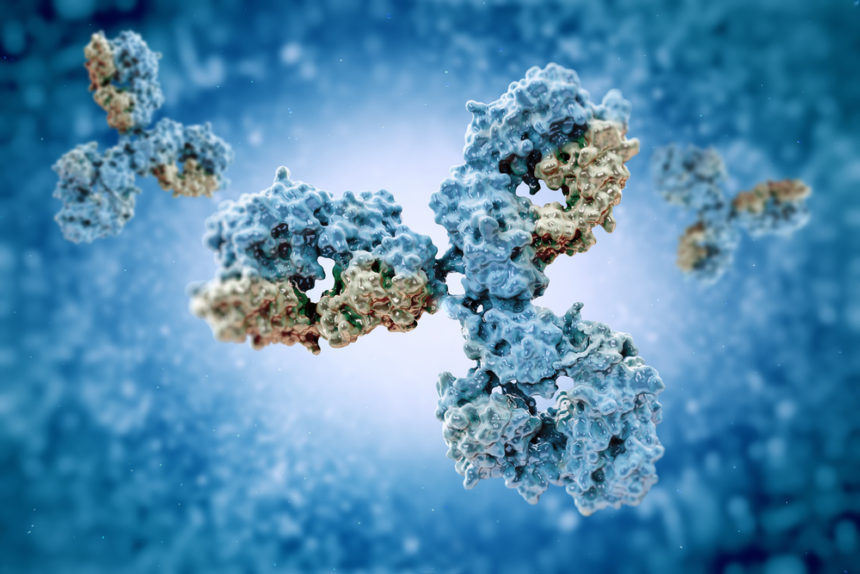This post was originally published on this site
Testing for specific gene mutations may help predict the patients with glioblastoma who will respond to immunotherapy, according to new research. The findings also suggest a therapeutic target that could lead to improved immunotherapy in these patients.
The study with those findings, “Immune and genomic correlates of response to anti-PD-1 immunotherapy in glioblastoma,” was published in the journal Nature Medicine.
Glioblastoma, the most common type of brain cancer, still lacks effective treatment. A type of immunotherapy called immune checkpoint inhibitors — which block the interaction between the PD-L1 protein in cancer cells and PD-1 in immune cells, boosting the anti-cancer response — has had success in diverse types of tumors, such as Hodgkin’s lymphoma. In contrast, a Phase 3 trial of PD-1 blockers (NCT02017717) showed effectiveness in only 8 percent of patients with glioblastoma.
Responses to anti-PD1 therapies are linked to the infiltration of immune cells in the tumor microenvironment in various cancer types. The more cells that are within a tumor and the area surrounding it, the more likely it is a patient will respond to these treatments.
However, glioblastoma is characterized by higher immunosuppression and a low rate of mutations, both of which are associated with poor responses to immune checkpoint inhibitors.
Aiming to find what differentiates glioblastoma patients who respond to immunotherapy, a team from Columbia University examined data from 66 glioblastoma adults before and after treatment with the PD-1 inhibitors Opdivo (nivolumab by Bristol-Myers Squibb), or Keytruda (pembrolizumab, by Merck).
Seventeen of these patients responded to the medications for six months or longer. These patients lived longer, compared to non-responders (median 15.5 months versus 5.7 months) researchers found.
Interestingly, the team found that more non-responsive tumors had mutations in a gene called PTEN, which resulted in higher levels of immunosuppressive cells and was associated with more clustered tumor cells, which altogether prevented immune cells from entering the tumor microenvironment.
In turn, responsive tumors — those showing only inflammation, with very few to no tumor cells, and stable or shrinking over six months — were more likely to have alterations in the PTPN11 and BRAF genes. These genes are implicated in the MAPK signaling pathway, which regulates key cellular functions such as proliferation, differentiation, and development.
“The observation in our cohort that BRAF/PTPN11 mutations are enriched in tumors responsive to anti-PD-1 therapy supports the rationale for combining checkpoint inhibitors with MAPK-targeted therapy in multiple cancers,” the scientists wrote. Targeting MAPK is an approved strategy for metastatic melanoma and is being tested in other cancer types.
“These mutations occurred before patients were treated with PD-1 inhibitors, so testing for the mutations may offer a reliable way to predict which patients are likely to respond to immunotherapy,” Fabio M. Iwamoto, MD, one of the study’s authors, said in a press release.
Raul Rabadan, PhD, the study’s senior author, said the results also reveal potential targets for treatment “that could improve immunotherapy for all glioblastoma patients.”
“Although this approach requires further validation, it might provide a means for the effective application of therapy for glioblastoma,” the team wrote.
The results also showed that non-responsive tumors had greater diversity in their T-cells, and suggested higher variability in immune B-cells. Gene sets associated with immunosuppression and with immune response evasion were more active in responsive tumors following immunotherapy.
“These findings are consistent with the notion that tumors of non-responders possessed primary resistance to immunotherapy,” the investigators added.
The post Specific Gene Mutations Predict Success of Immunotherapy in Glioblastoma Patients, Study Reports appeared first on Immuno-Oncology News.
The post Specific Gene Mutations Predict Success of Immunotherapy in Glioblastoma Patients, Study Reports appeared first on BioNewsFeeds.


